
Explore the Enchanting Umswai Valley: A Natural Gem in Assam
Discover the natural beauty and rich culture of Umswai Valley, an enchanting destination in Assam, perfect for nature lovers and cultural enthusiasts.
Nestled in the heart of Assam, Umswai Valley, also known as the Ancient Tiwa Hills, invites tourists to experience its breathtaking landscapes and rich cultural heritage. This serene destination is perfect for nature lovers and adventure seekers alike, offering picturesque views, tranquil surroundings, and a glimpse into the life of the Tiwa tribal community. Whether hiking through lush greenery or exploring local traditions, Umswai Valley promises an unforgettable experience.
A brief summary to Umswai Valley (The Ancient Tiwa Hills)
- W6WR+V4X, Umswai, Assam, 782410, IN
- Monday 12 am-12 am
- Tuesday 12 am-12 am
- Wednesday 12 am-12 am
- Thursday 12 am-12 am
- Friday 12 am-12 am
- Sunday 12 am-12 am
Local tips
- Visit during the monsoon season for the lushest landscapes and vibrant scenery.
- Engage with local Tiwa artisans to learn about their crafts and traditions.
- Pack snacks and water for your hikes; facilities may be limited in the valley.
- Bring a camera to capture the stunning views and unique wildlife.
- Consider visiting during local festivals for a unique cultural experience.
Getting There
-
Car
If you are traveling by car, start your journey from Guwahati, which is approximately 50 kilometers away from Umswai Valley. Head east on NH27, and after around 30 kilometers, take the exit towards NH6. Continue on NH6 for about 15 kilometers until you reach the junction for Umswai. From there, follow the road signs towards Umswai, which will take you directly to the valley. The drive should take about 1.5 to 2 hours, depending on traffic conditions.
-
Public Transportation
For those using public transportation, take a bus from Guwahati to Umswai. Buses frequently depart from the Guwahati Inter-State Bus Terminus (ISBT) to various destinations in the region. Look for buses headed to Umswai or nearby towns. The fare is typically around ₹100-₹150, and the journey may take approximately 2 to 3 hours. Once you arrive in Umswai, you can hire a local taxi or auto-rickshaw to take you to the valley, which is about 5-10 kilometers from the bus stop.
-
Local Transportation
Upon reaching Umswai, you may need a local mode of transportation to explore the valley and its attractions. Auto-rickshaws are commonly available and can take you to various spots within the valley. Make sure to negotiate the fare beforehand, which can range from ₹50 to ₹200 depending on the distance. If you prefer a more immersive experience, consider hiring a local guide who can provide insight into the region and its culture.
Discover more about Umswai Valley (The Ancient Tiwa Hills)
Iconic landmarks you can’t miss
Nizora Park & Waterfall
19.1 km
Experience tranquility and natural beauty at Nizora Park & Waterfall in Jagiroad, Assam, a perfect getaway for nature lovers and families.
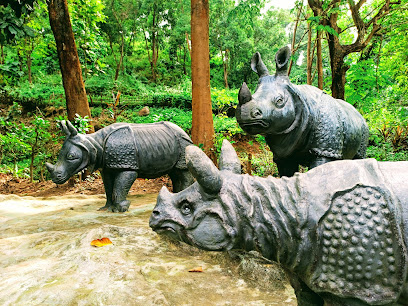
Dolphin Viewing Point
41.4 km
Explore the Dolphin Viewing Point in Assam: A breathtaking natural attraction where playful dolphins dance in the waters amidst stunning landscapes.
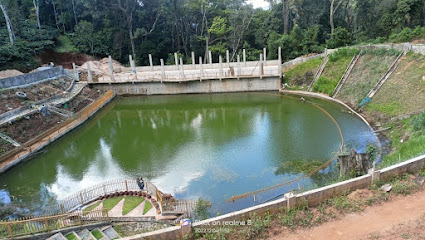
Dreamland Amusement Park
46.0 km
Discover fun and thrills at Dreamland Amusement Park in Guwahati, a perfect family-friendly destination for unforgettable adventures and excitement.
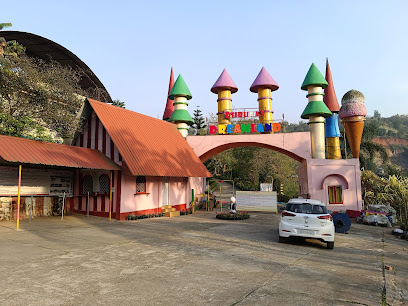
Tawang Tours
48.3 km
Experience Assam's beauty and culture with Tawang Tours, offering unique home stays and expertly guided adventures in Guwahati.
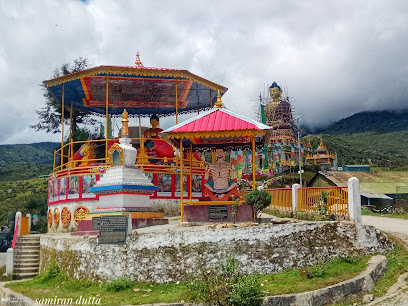
NORTH EAST INDIA TOURS
48.4 km
Discover the enchanting landscapes and rich cultures of Northeast India with expertly curated tours from North East India Tours.
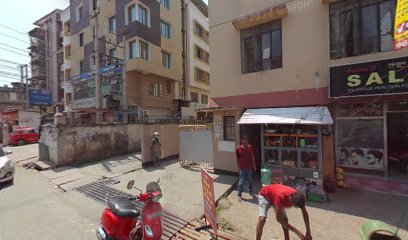
Northeast India Tourism
48.8 km
Discover the beauty of Northeast India at the tourism hub in Guwahati, your gateway to culture, nature, and adventure.
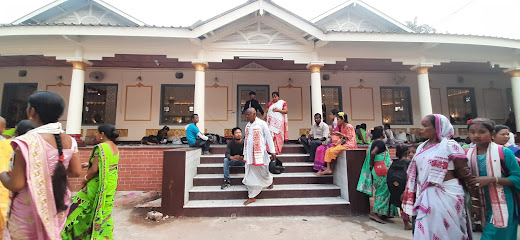
North East India Unexplored
49.0 km
Explore the breathtaking landscapes and rich cultures of North East India with tailored tours from North East India Unexplored, your gateway to hidden treasures.
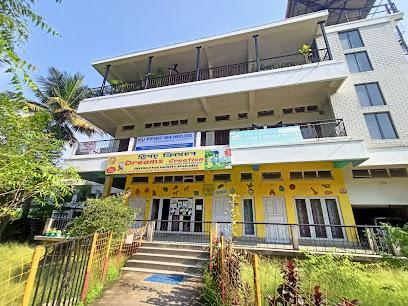
Mini
50.2 km
Explore Mini in Guwahati: A serene tourist attraction that embodies the charm and culture of Assam.
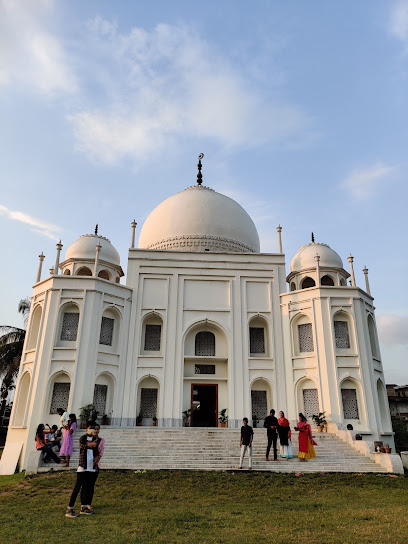
North East India History Association
50.9 km
Explore the rich heritage and cultural narratives of Northeast India at the North East India History Association in Shillong, a must-visit for history enthusiasts.
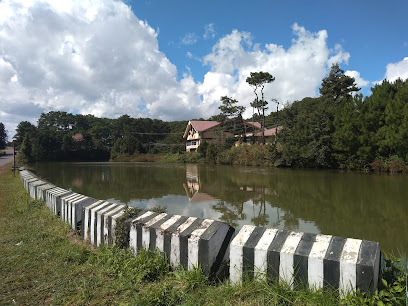
NorthEast India24
51.9 km
Explore the rich culture and breathtaking beauty of Northeast India through engaging media at NorthEast India24 in Guwahati, Assam.
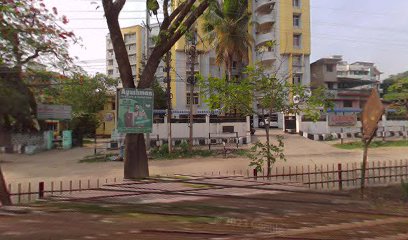
Northeastindia.org
51.9 km
Discover the heart of Assam with a cozy home stay in Guwahati, blending comfort and local culture for an unforgettable travel experience.
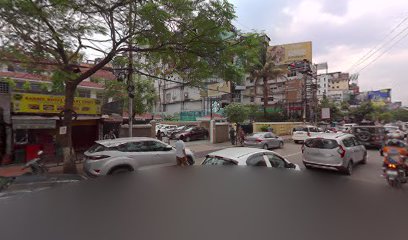
North East Trip
51.9 km
Explore the enchanting landscapes and rich cultures of North East India with North East Trip's expertly crafted tours and exceptional service.
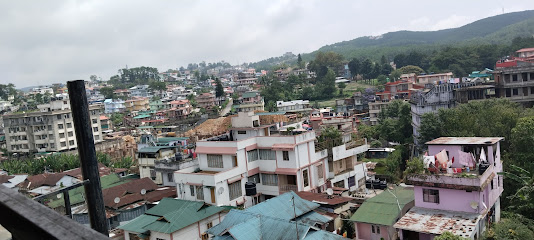
TOURIST ROUTE INDIA
52.3 km
Discover the hidden treasures of Meghalaya and North East India with Tourist Route India, your expert travel guide to breathtaking landscapes and rich cultural experiences.
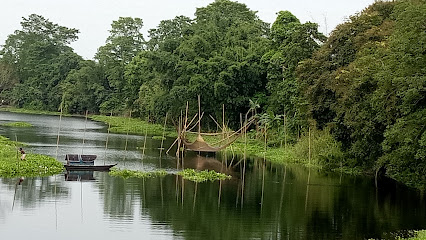
Shillong tourism
52.3 km
Explore Shillong, a picturesque hill station in Meghalaya, known for its stunning landscapes, rich culture, and vibrant musical heritage.
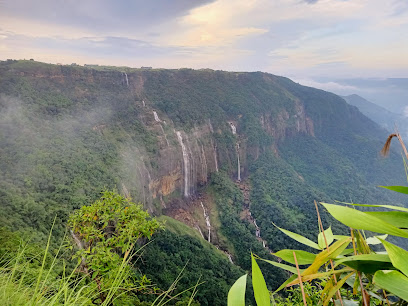
hestosing war
52.4 km
Experience the perfect blend of leisure and nature at Hestosing War, Shillong's premier golf course, set against stunning mountainous backdrops.
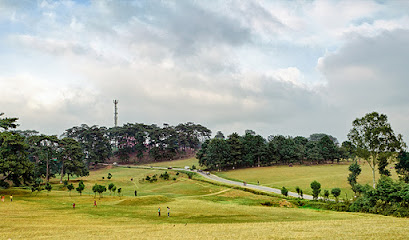
Unmissable attractions to see
Pobitora Wildlife Sanctuary
36.6 km
Discover Pobitora Wildlife Sanctuary: A compact Assam refuge with the world's densest population of Indian one-horned rhinoceroses.
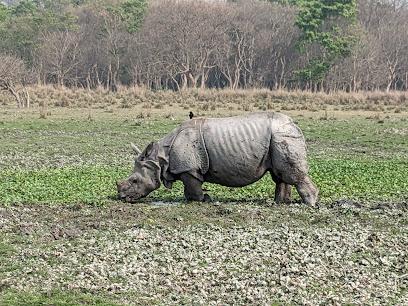
Hanging Bridge,Hamren
38.4 km
Discover the thrilling Hanging Bridge in Hamren, Assam, where adventure meets stunning natural beauty amidst lush landscapes.
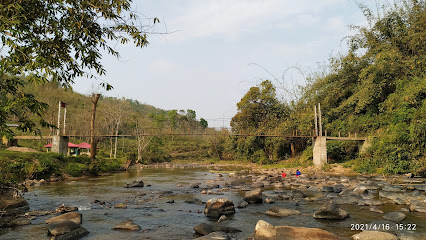
Nartiang Monoliths
41.6 km
Explore the ancient Nartiang Monoliths in Meghalaya, a captivating archaeological site offering a glimpse into the region's rich cultural heritage and stunning natural beauty.
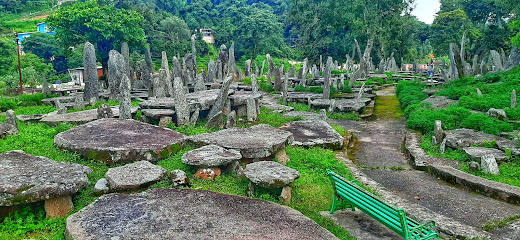
Umiam Lake
45.9 km
Discover the serene beauty of Umiam Lake in Meghalaya, a perfect blend of nature, adventure, and tranquility set amidst lush hills and tranquil waters.
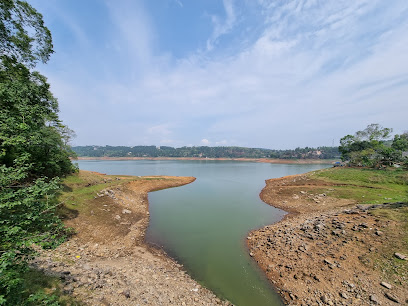
Srimanta Sankaradeva Kalakshetra
46.5 km
Explore Assam's vibrant culture and traditions at Srimanta Sankaradeva Kalakshetra, a tribute to the region's rich heritage and artistic excellence.
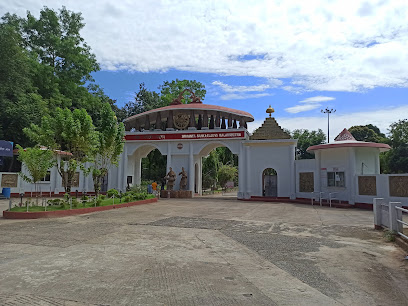
SCIENCE MUSEUM, Khanapara Guwahati
46.6 km
Explore interactive science exhibits, 3D shows, and a prehistoric park at Guwahati's Regional Science Centre. A fun and educational experience for all ages!
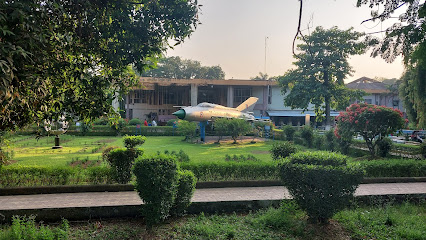
Lum Nehru Park
46.7 km
Experience the serene beauty of Lum Nehru Park, a lush haven in Umiam, Meghalaya, perfect for relaxation, picnics, and nature exploration.
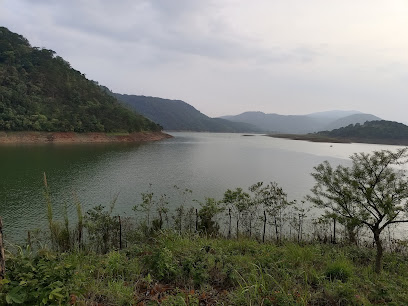
Umiam Lake Viewpoint
47.8 km
Experience the serene beauty of Umiam Lake Viewpoint, where lush hills meet tranquil waters in the heart of Meghalaya.
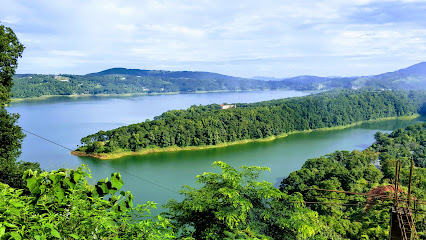
Basistha Temple
48.4 km
A serene Shiva temple and ashram on Guwahati's outskirts, where mythology meets nature's tranquility.
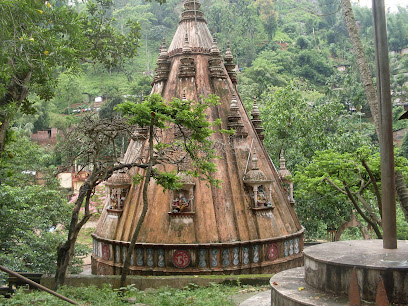
New Shillong View Point
49.6 km
Experience the stunning landscapes and serene beauty of New Shillong View Point, a must-visit destination in Meghalaya for breathtaking views and relaxation.
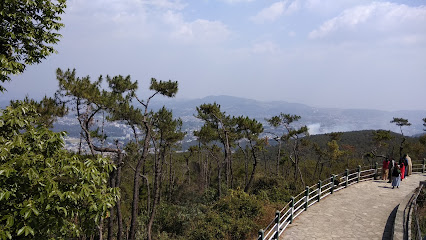
Rngei, Mawlynrei
50.2 km
Explore the breathtaking landscapes and vibrant culture of Rngei, a hidden gem in Mawlynrei, Meghalaya, perfect for nature lovers and adventurers alike.
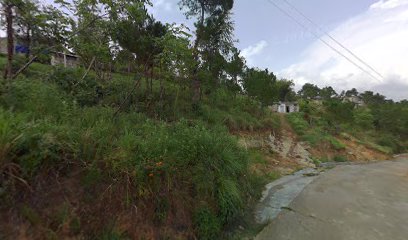
Mini Tajmahal
50.3 km
Experience the serene beauty of Guwahati's Mini Taj Mahal, a peaceful retreat with stunning architecture and lush surroundings.
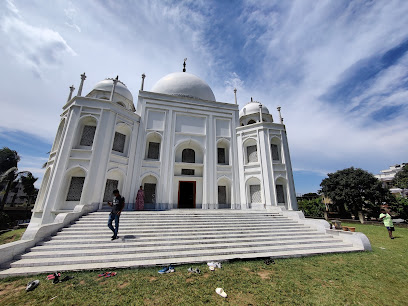
प्रेम सरोवर
50.8 km
Experience tranquility and natural beauty at Prema Sarovar in Shillong, Meghalaya – a serene escape for nature lovers and peace seekers.

Rangphlang,Laitlum
50.9 km
Discover the breathtaking landscapes and rich culture of Rangphlang, a serene paradise in Laitlum, Meghalaya, perfect for nature lovers and adventurers.

Waterfall, NEHU
51.0 km
Discover the serene beauty of the Waterfall at NEHU in Shillong, Meghalaya - a natural gem surrounded by lush greenery and stunning landscapes.
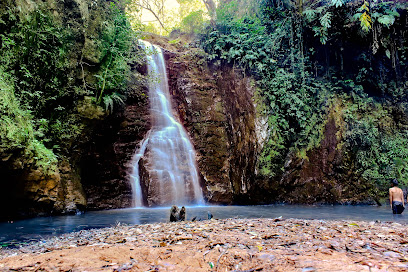
Essential places to dine
Jiva Veg
36.5 km
Experience exquisite vegetarian cuisine at Jiva Veg in Meghalaya - where health meets flavor in every delightful dish.
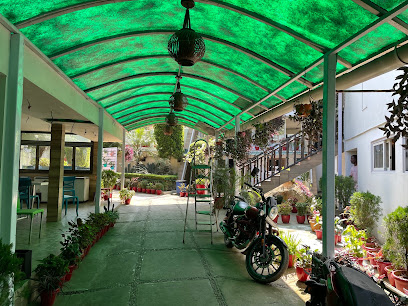
Namdang The Wild Retreat Dhaba
37.4 km
Savor authentic Assamese flavors at Namdang The Wild Retreat Dhaba – where every meal tells a story amidst nature's beauty.
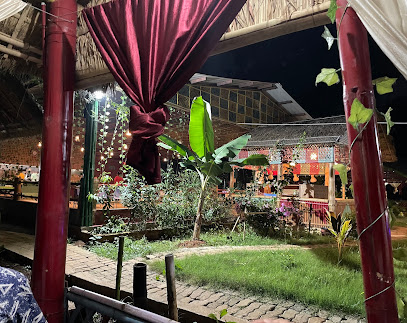
Aroma : Modern Dining
44.9 km
Discover Aroma: A gastronomic delight blending local Assamese flavors with international cuisine in a serene setting.

Palei Kitchen
45.6 km
Experience the best of Indian and Chinese cuisine at Palei Kitchen in Shillong - a culinary haven for food lovers.
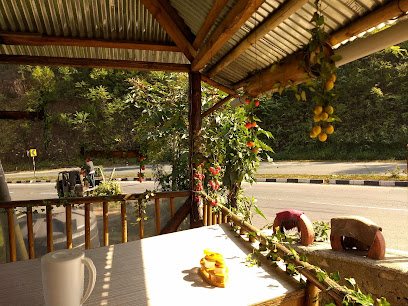
Dine Way Platz
46.7 km
Experience exquisite fine dining at Dine Way Platz in Guwahati – where local flavors meet international cuisine in an inviting atmosphere.
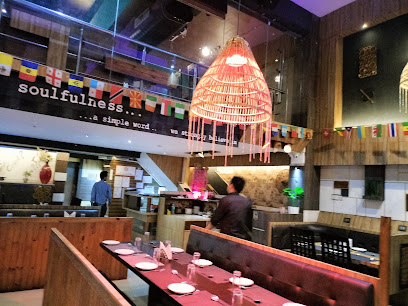
Bamboo Heights Ethnic Family Restaurant
46.8 km
Experience the perfect blend of Indian and Chinese cuisines at Bamboo Heights Ethnic Family Restaurant in Guwahati.
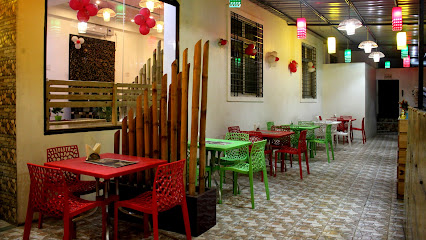
JO:SAG - Ethnic Cuisine Restaurant
47.2 km
Discover authentic Assamese flavors at JO:SAG - Ethnic Cuisine Restaurant in Guwahati, where tradition meets taste.
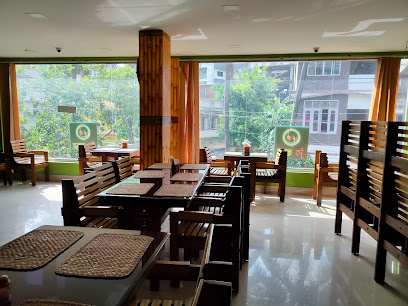
Lam Naga Restaurant
47.5 km
Experience authentic North Eastern Indian cuisine at Lam Naga Restaurant in Guwahati—where every dish tells a story.
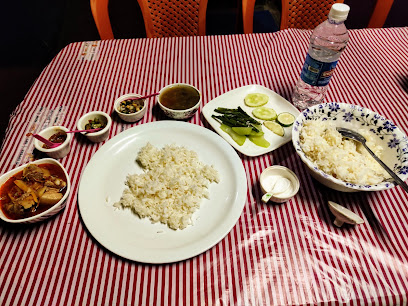
Eats & Beats Restro
47.6 km
Experience the best of Indian cuisine at Eats & Beats Restro in Guwahati - where delicious food meets vibrant ambiance.
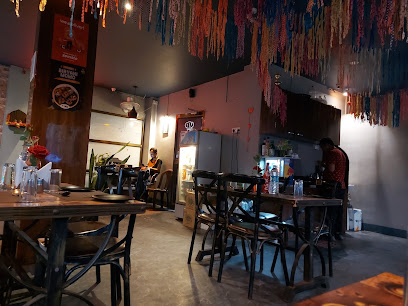
Michinga Restaurant
47.9 km
Discover the heart of Assamese cuisine at Michinga Restaurant, where tradition meets flavor in every dish.
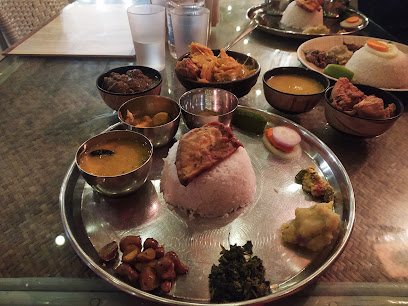
Paaro Jodi Khaa restaurant
47.9 km
Discover the rich flavors of Assam at Paaro Jodi Khaa, where authentic Indian and Chinese dishes come together in a vibrant setting.
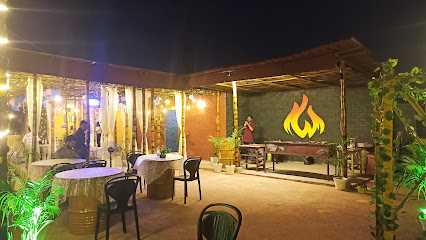
Sao Aiom Restaurant
48.0 km
Experience the rich culinary diversity at Sao Aiom Restaurant in Umbir, Meghalaya - where every dish tells a story.
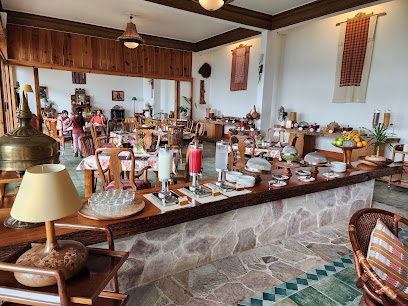
JholoeKiya : Experiential Dining
48.0 km
Experience Assam's rich culinary heritage at JholoeKiya in Guwahati – where every meal is a flavorful journey.

Restaurant
48.2 km
Discover authentic Assamese cuisine at this must-visit restaurant in Guwahati, where tradition meets flavor.

Souka Restaurant
48.2 km
Discover the flavors of Assam at Souka Restaurant in Guwahati—where family-friendly dining meets exquisite culinary delights.
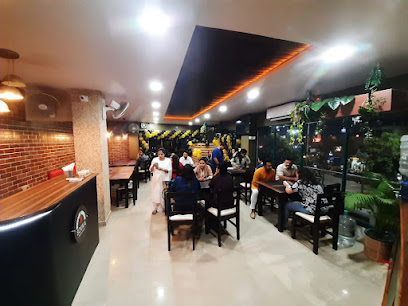
Markets, malls and hidden boutiques
Panjabari gift store
45.8 km
Explore the charm of Assam at Panjabari Gift Store, where unique handicrafts and local treasures await every traveler.

KING's COLLECTION ASSAM
47.3 km
Explore the vibrant fashion scene at KING's COLLECTION ASSAM, where traditional Assamese textiles meet modern style in Guwahati.

Rudram- The Ethnic Fashion House Boutique
47.7 km
Discover the essence of Assamese culture at Rudram, the premier ethnic fashion boutique in Guwahati, showcasing exquisite traditional attire and unique handicrafts.

Hello Beautiful-Beltola Bazaar (Upama3)
47.8 km
Discover a vibrant women’s clothing store in Guwahati, offering unique styles, accessories, and a delightful shopping experience at Hello Beautiful-Beltola Bazaar.

Abhinandan Gifts & Cosmetics
47.8 km
Explore the unique blend of Assamese culture and beauty at Abhinandan Gifts & Cosmetics, your go-to spot for souvenirs and cosmetics in Guwahati.
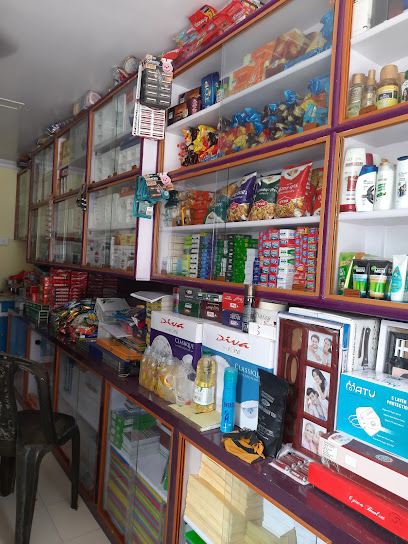
DARSHWANA GIFT & DECOR
48.5 km
Explore a curated selection of unique gifts and elegant home decor at Darshwana Gift & Decor in Guwahati, Assam.
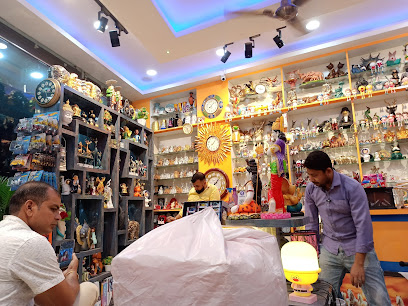
Shahnaz Fashion (Since 1998)
48.5 km
Discover exquisite Assamese fashion at Shahnaz Fashion, a boutique in Guwahati offering custom tailoring and stylish outfits since 1998.

AARNA Exclusive Gift & Toys
49.4 km
Explore AARNA Exclusive Gift & Toys in Guwahati for unique, locally-crafted gifts and toys that embody the charm of Assam.

Lifestyle Stores
49.4 km
Discover a vibrant shopping experience at Lifestyle Stores in Guwahati, where fashion meets beauty in a delightful retail atmosphere.

Copo by Rupohi Assam
49.4 km
Explore the charm of Assam with unique handcrafted souvenirs and gifts at Copo by Rupohi Assam in Guwahati.

Kuhi Gift Shop
49.8 km
Explore the vibrant culture of Assam through unique handicrafts and souvenirs at Kuhi Gift Shop in Guwahati, where every item tells a story.

October 6 - A Multidesigner Store
50.0 km
Explore October 6, Guwahati's premier multidesigner store for unique fashion pieces and an unforgettable shopping experience.

Unique Gallery
50.7 km
Explore Unique Gallery in Guwahati: A vibrant gift shop offering local crafts, souvenirs, and games for all ages.
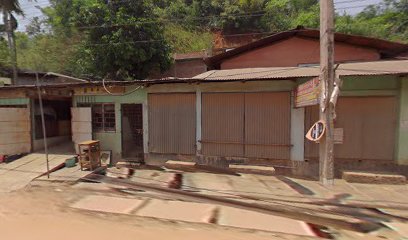
Poshak Boutique Ganeshguri
50.9 km
Discover unique Assamese fashion at Poshak Boutique in Ganeshguri, Guwahati – where tradition meets contemporary style.

UNIQUE STORE
51.1 km
Explore the vibrant fashion scene at Unique Store in Japorigog, Guwahati, where local craftsmanship meets contemporary style.

Essential bars & hidden hideouts
Urban Mantra six mile
47.2 km
Discover Urban Mantra in Guwahati, where culinary excellence meets a vibrant bar atmosphere for unforgettable dining experiences.
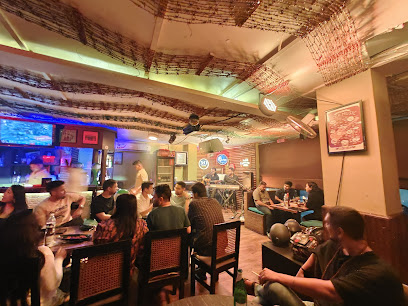
Wine O’Clock Restro Bar
47.9 km
Discover the vibrant nightlife of Guwahati at Wine O’Clock Restro Bar, where music, dance, and delicious food come together for an unforgettable evening.

THE ECHO Pub & Grill
48.0 km
Discover the nightlife of Guwahati at THE ECHO Pub & Grill, where vibrant energy meets delicious cuisine and refreshing drinks.
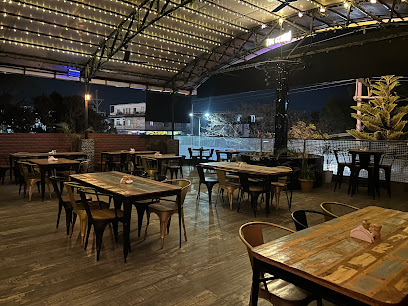
Exotica Bar and Restro
48.0 km
Explore the vibrant nightlife of Guwahati at Exotica Bar and Restro, offering delicious local cuisine and a wide range of drinks in a lively atmosphere.

Spectrum Bar
48.5 km
Discover the lively atmosphere and diverse drink selection at Spectrum Bar in Guwahati, where unforgettable nights await.

DUNKIN OZA
48.8 km
Discover the vibrant nightlife at Dunkin Oza in Guwahati, where cocktails and craft beers meet a lively atmosphere.

Nuts and Brew
49.0 km
Experience the best of craft beers, delicious food, and live music at Nuts and Brew, Guwahati's premier brewpub and nightlife destination.

Reem Bar & Restaurant
49.3 km
Experience a culinary journey at Reem Bar & Restaurant in Guwahati, where local flavors meet a vibrant atmosphere for an unforgettable dining experience.

Unique WINE SHOP
49.6 km
Experience the elegance of wine at the Unique Wine Shop in Guwahati, where every bottle tells a story and every sip transports you to a world of flavor.
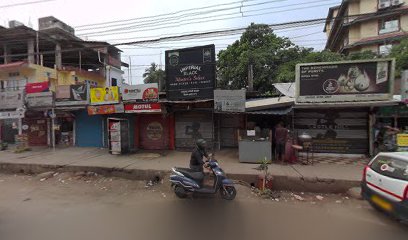
Intoxica Bar Cum Restaurant
50.3 km
Discover the fusion of vibrant nightlife and exquisite dining at Intoxica Bar Cum Restaurant in Guwahati.

T Sin Q - Sports cum Lounge Bar
50.7 km
Experience the ultimate blend of sports, drinks, and vibrant nightlife at T Sin Q Sports Lounge Bar in Guwahati.

SIN LOUNGE
51.0 km
Discover the vibrant flavors of Assam at Sin Lounge, a premier grill restaurant in Guwahati offering a delightful dining experience.

Quarters - Pauva Bar
51.3 km
Experience the vibrant nightlife of Guwahati at Quarters - Pauva Bar, where great drinks and an inviting atmosphere await.

The Socialite
51.3 km
Discover the vibrant atmosphere and delectable culinary offerings at The Socialite, Guwahati's premier bar and restaurant for food and drink enthusiasts.
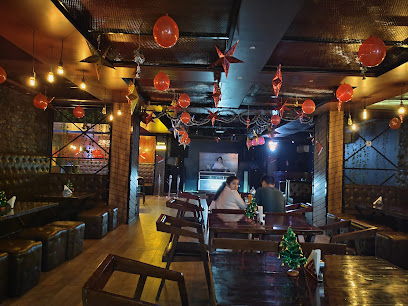
Lounge 42
51.4 km
Discover Lounge 42 in Shillong, a stylish lounge and bar perfect for relaxation with friends and evening cocktails amidst a cozy atmosphere.

Nightclubs & after hour spots
RETRO TOWN
47.2 km
Discover the vibrant nightlife of Guwahati at Retro Town, where great food, live music, and an electrifying atmosphere await you.
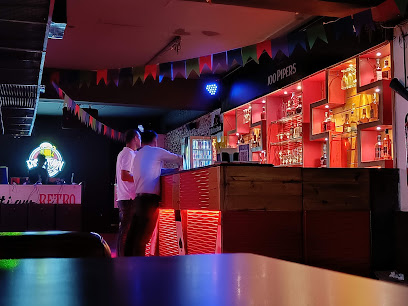
Tulip Restaurant(Club DMD)
47.6 km
Discover the vibrant atmosphere and diverse menu of Tulip Restaurant (Club DMD), where grilled delights and nightlife come together in Guwahati.

Changmai@07
50.1 km
Discover the electrifying nightlife at Changmai@07, Guwahati's premier night club offering vibrant music and an unforgettable party atmosphere.
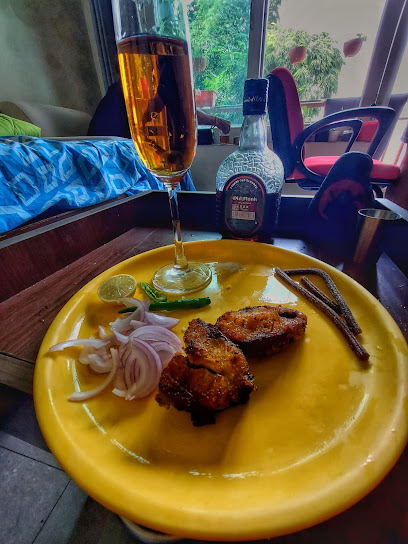
ਕੁਸ਼ਲਨਗਰ ਗੋਲਡਨ ਟ੍ਰੈਂਗਲ
51.9 km
Dive into the vibrant nightlife of Guwahati at Kushalnagar Golden Triangle, where music, dancing, and fun come together for an unforgettable experience.
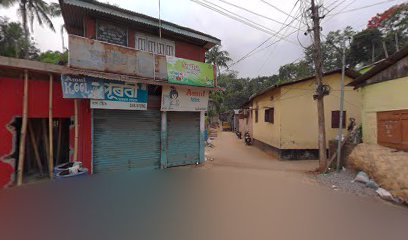
FTV Bar & Lounge
52.3 km
Discover the vibrant nightlife of Guwahati at FTV Bar & Lounge, where exquisite cuisine meets a lively atmosphere in a stylish setting.
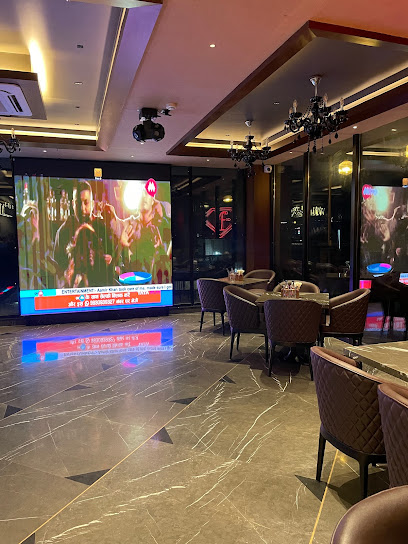
Crystal Discotheque
52.8 km
Discover the electrifying nightlife of Guwahati at Crystal Discotheque, where vibrant music and a lively atmosphere come alive.

Bsnl Club
53.1 km
Discover the vibrant nightlife of Shillong at Bsnl Club, where lively music, delicious drinks, and unforgettable experiences await you.

Merramaya
53.2 km
Dive into the vibrant nightlife of Guwahati at Merramaya, where music and culture blend for an unforgettable experience.
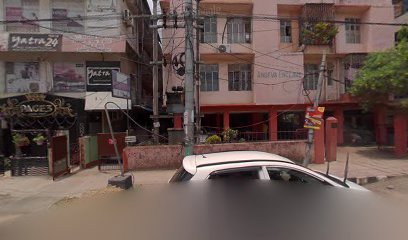
Cobraland
53.3 km
Discover the vibrant nightlife of Guwahati at Cobraland, the ultimate destination for unforgettable parties and live music experiences.

La bamba
53.3 km
Experience the vibrant nightlife at La Bamba, Guwahati's premier night club, where music, dance, and fun come together in a lively atmosphere.

Night Life Disco
53.4 km
Dive into the electrifying nightlife of Shillong at Night Life Disco, where music and dancing create unforgettable moments.
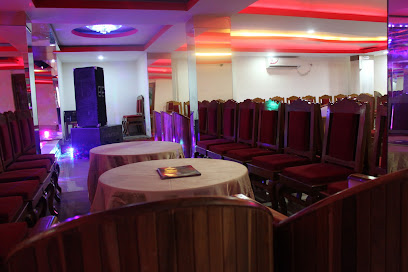
The Cellar
54.1 km
Experience the vibrant nightlife of Guwahati at The Cellar, a stylish lounge offering great music, delicious drinks, and a lively atmosphere.

UNIQUE POINT
54.3 km
Experience the electric nightlife at UNIQUE POINT in Guwahati, where music, dance, and vibrant energy come together for an unforgettable evening.
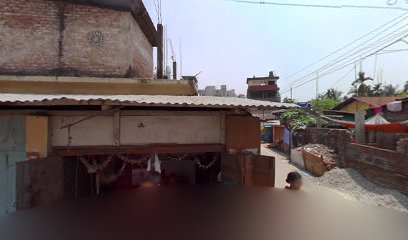
ThePitch Restro & Bar
54.4 km
Discover the perfect blend of local culture and international flavors at ThePitch Restro & Bar in Shillong, Meghalaya.

Dancing Karma Lounge & Bar
54.5 km
Experience the vibrant nightlife of Guwahati at Dancing Karma Lounge & Bar, where delicious drinks and good vibes come together.




